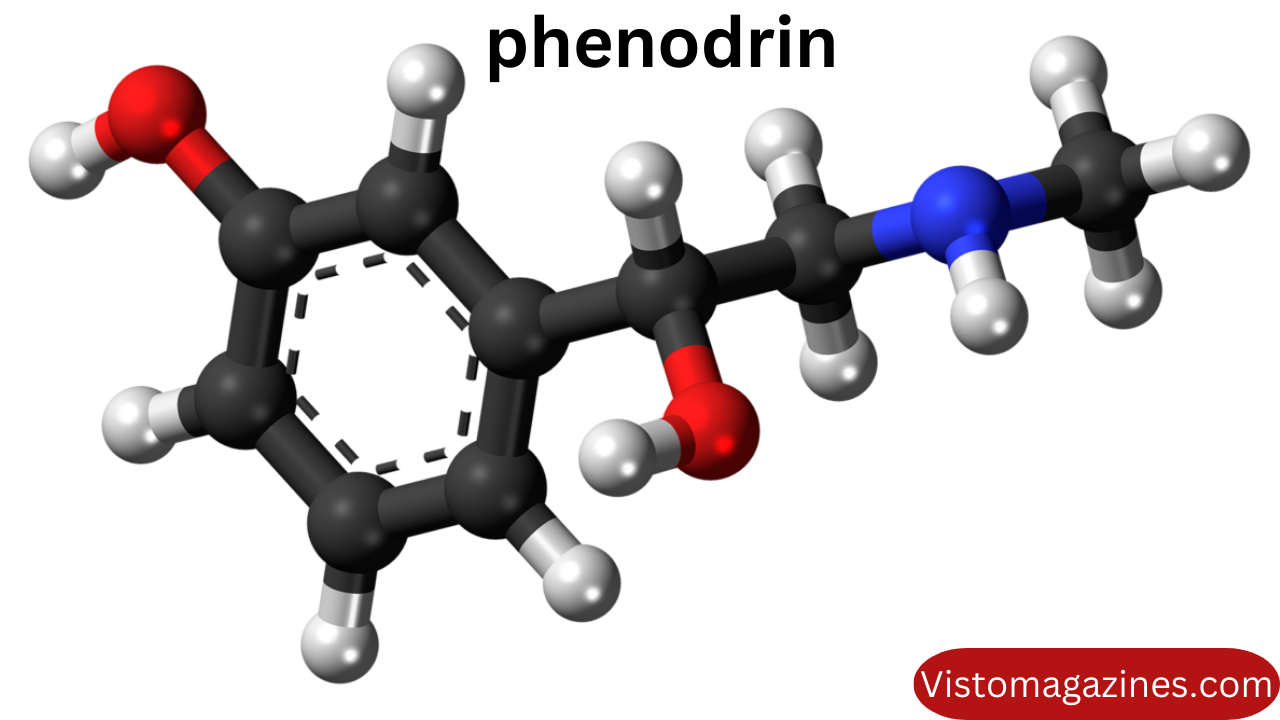Introduction: What is Phenodrin?
Phenodrin, often misunderstood or confused with other similar-sounding substances, is a compound that has been the subject of scientific research due to its various potential applications. It is important to understand what phenodrin is, how it works, and why it’s gaining attention in both medical and scientific circles. In this article, we will dive into the details of phenodrin, its origins, how it functions in the body, its potential benefits, as well as the concerns surrounding its use.
The Chemical Nature of Phenodrin
Phenodrin belongs to a class of compounds that exhibit a variety of physiological effects. While it is not as commonly known as other substances like aspirin or ibuprofen, phenodrin has piqued the interest of researchers due to its promising properties. Phenodrin is chemically related to certain pharmaceutical drugs but differs in its specific actions and mechanisms in the human body.
Phenodrin is structurally similar to compounds that influence neurotransmitter systems, which play an essential role in mood regulation, pain perception, and cognitive function. This makes phenodrin potentially useful in the treatment of various health conditions, including those affecting the nervous system.
Uses of Phenodrin in Medicine
While research on phenodrin is still in its early stages, there are several areas where it shows promise in medicine. Phenodrin has been studied for its potential to treat conditions such as:
- Pain Management: Like other compounds that target the nervous system, phenodrin may help in the management of pain. It is believed to act on certain receptors in the brain, which could help alleviate pain, particularly chronic conditions like arthritis or neuropathic pain.
- Anti-inflammatory Properties: Some studies suggest that phenodrin could have anti-inflammatory effects. Inflammation is at the core of many chronic diseases, and if phenodrin can reduce inflammation, it could offer a new avenue for treatment.
- Mood and Cognitive Enhancement: Phenodrin may also impact mood regulation, potentially being useful in treating depression, anxiety, or even cognitive disorders like Alzheimer’s disease. Research is ongoing to better understand how phenodrin affects brain function.
- Antioxidant Effects: Phenodrin has been investigated for its antioxidant properties. Antioxidants are known to neutralize harmful free radicals in the body, which can help reduce cellular damage and the risk of chronic diseases like cancer and cardiovascular disease.
How Does Phenodrin Work in the Body?
The mechanism of action of phenodrin is complex and not yet fully understood. However, scientists believe that it interacts with specific neurotransmitters and receptors in the brain. By modulating these systems, phenodrin can produce its effects on mood, cognition, and pain relief.
Phenodrin is believed to act on pathways involved in serotonin, dopamine, and norepinephrine regulation. These neurotransmitters are crucial for mood regulation, and imbalances in these chemicals are often linked to mental health disorders such as depression and anxiety. As such, phenodrin’s potential role in improving mood and cognitive function is an area of ongoing research.
Furthermore, phenodrin’s potential to reduce inflammation may be linked to its ability to inhibit certain enzymes and proteins responsible for inflammatory responses. By targeting these pathways, phenodrin could help reduce swelling, pain, and discomfort caused by inflammation.
Benefits of Phenodrin: Potential Advantages
The benefits of phenodrin, while still being investigated, appear to be promising. Here are some of the potential advantages that phenodrin might offer:
- Pain Relief: For individuals suffering from chronic pain conditions, phenodrin may offer a new, effective treatment option. If further studies confirm its analgesic properties, it could serve as an alternative to traditional pain medications like opioids, which are often associated with side effects and addiction risks.
- Improved Mental Health: Given its potential effects on mood regulation, phenodrin could play a role in managing mental health conditions such as depression, anxiety, or even cognitive decline. By improving the balance of neurotransmitters in the brain, it may help stabilize mood and cognitive function, offering a new avenue for psychiatric care.
- Reduced Inflammation: With its potential anti-inflammatory effects, phenodrin may help in managing inflammatory diseases. Conditions like rheumatoid arthritis or inflammatory bowel disease (IBD) could see improvements with phenodrin’s ability to reduce inflammation, potentially improving quality of life for patients.
- Antioxidant Support: Phenodrin’s antioxidant properties could provide a protective effect against oxidative stress, which is a contributing factor in many chronic diseases, including cardiovascular diseases and cancer. By reducing oxidative damage, phenodrin might help lower the risk of these serious conditions.
Side Effects and Risks of Phenodrin
Despite the promising potential of phenodrin, there are concerns about its safety and possible side effects. As with any medication or compound, careful consideration of its risks is crucial. Some of the potential side effects that have been associated with phenodrin include:
- Gastrointestinal Issues: Like many other compounds that interact with the body’s biochemical pathways, phenodrin may cause gastrointestinal distress. This could include symptoms like nausea, vomiting, diarrhea, or stomach pain. These side effects, while not always severe, can still affect a patient’s comfort and willingness to continue treatment.
- Neurological Effects: Since phenodrin affects neurotransmitter systems, it may have neurological side effects. These could range from mild dizziness or headaches to more serious concerns like memory loss or confusion, particularly in older adults or those with pre-existing cognitive issues.
- Allergic Reactions: Some individuals may experience allergic reactions to phenodrin, which could range from mild rashes to more severe symptoms like difficulty breathing or swelling. Anyone who experiences these symptoms should seek medical attention immediately.
- Interaction with Other Medications: Phenodrin may interact with other medications, particularly those that affect neurotransmitter systems, such as antidepressants, anti-anxiety medications, or painkillers. This could lead to unwanted side effects or reduced efficacy of either drug. It is important to consult a healthcare professional before combining phenodrin with any other medications.
Regulatory Status and Future Prospects
As of now, phenodrin is not widely available as a commercial drug. Its status in the medical community is still largely experimental. Much of the current research on phenodrin is focused on determining its safety, optimal dosage, and long-term effects on health.
However, if clinical trials continue to support its safety and efficacy, phenodrin could become a valuable therapeutic tool. In the future, it might be used to treat a variety of conditions, from chronic pain to mental health disorders, with fewer side effects than existing medications.
Conclusion: The Future of Phenodrin
Phenodrin is an intriguing compound with significant potential in the medical field. Though much of the research is still in its infancy, the possibility of phenodrin becoming a key player in the treatment of pain, inflammation, and mental health disorders is an exciting prospect. However, as with any new treatment, its risks must be carefully evaluated, and more research is needed to fully understand its mechanisms and long-term effects.
For now, phenodrin remains a subject of scientific inquiry, but its potential benefits could one day lead to breakthroughs in how we approach a wide range of health conditions. Until then, patients and healthcare providers alike must continue to monitor the ongoing research and carefully consider the pros and cons of incorporating phenodrin into therapeutic regimens.



